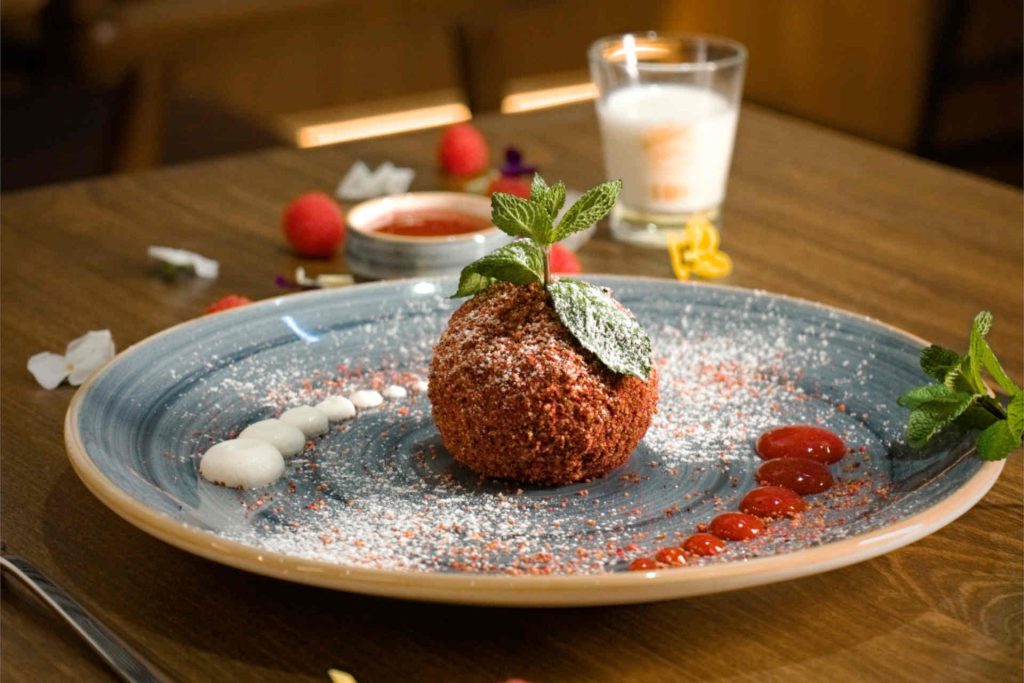
Austrian cuisine is synonymous with authenticity, flavor, and tradition. While classic dishes such as Wiener Schnitzel and Kaiserschmarrn remain ever-popular, a fascinating trend is emerging: more and more restaurateurs are striking the perfect balance between tradition and innovation – and finding remarkable success.
This is evident in the winners of the 2024 Lieferando Awards: Wiener Genuss Knödel was crowned “most innovative restaurant,” while Heurigenrestaurant Wittmann won the title of best Austrian restaurant. But what makes modern takes on traditional dishes so appealing? And are we witnessing a true revival of Austrian Wirtshausküche (Hausmannskost)?
Knödel (dumplings) are an essential part of Austrian culinary heritage, but at Wiener Genuss Knödel, they are reimagined in a way that pushes boundaries. Whether savory, sweet, or fruity, these traditional dumplings are given a modern twist with innovative fillings that create entirely new taste experiences. The concept proves that tradition and innovation are not mutually exclusive – they can, in fact, complement each other beautifully.
What makes a dish truly innovative? The key lies in blending familiar flavors with fresh interpretations. While classic dumplings are often served with apricots or gnocchi, Wiener Genuss Knödel surprises with creations such as Hot&Spicy – three types of cheese, jalapenos and chilli –, Mediterranean – paprika, feta cheese and olives – or sweet variations such as Red Velvet with raspberry and mascarpone. This approach appeals not only to lovers of traditional cuisine but also to a new generation of food enthusiasts seeking unique culinary adventures.
The Heurigenrestaurant Wittmann demonstrates that authentic Austrian cuisine is timeless – as long as it is presented with the right approach. Alongside its traditional offerings, the restaurant carefully integrates modern dishes made with high-quality, regional ingredients. This strategy bridges the gap between heritage and contemporary finesse.
The success of Wittmann’s heurigen is part of a broader movement: young restaurateurs are increasingly embracing Wirtshausküche (Hausmannskost) while moving away from outdated presentations. The focus is on locally sourced, high-quality products and a modern, often minimalist aesthetic – a deliberate departure from heavy wooden furniture and overwhelming menus.
Several factors contribute to its growing appeal:
The success of Wiener Genuss Knödel and Heurigenrestaurant Wittmann proves that Austrian Wirtshausküche (Hausmannskost) is experiencing a revival – but not in its original form. Instead, traditional dishes are being reimagined in ways that respect their heritage while embracing modern sensibilities.
Wirtshausküche 2.0 is more than just a trend – it is a statement of taste, cultural identity, and innovation. And this culinary evolution is far from over.

There is a tension between digital progress and emotional hospitality that is redefining the restaurant industry. AI, automation, and data-based processes are changing not only workflows, but also attitudes, communication, and expectations. What was once considered a gimmick is now becoming a strategic necessity. And perhaps the most important question of our time: How can humans remain relevant in a world that is becoming increasingly digital?
Pizza is one of those dishes that everyone has an opinion about. Almost everyone thinks they understand it—and yet a surprising number of people fail at this culinary “common property”. In Vienna and beyond, Neapolitan pizzerias are now springing up everywhere, some excellent, others whose interest in good pizza comes to an abrupt end. As we all know, quantity does not equal quality. Or, to quote Martin Albrich from the First Vienna Pizza Association: Pizza is bread. And bread forgives nothing.


Austrian cuisine is synonymous with authenticity, flavor, and tradition. While classic dishes such as Wiener Schnitzel and Kaiserschmarrn remain ever-popular, a fascinating trend is emerging: more and more restaurateurs are striking the perfect balance between tradition and innovation – and finding remarkable success.
This is evident in the winners of the 2024 Lieferando Awards: Wiener Genuss Knödel was crowned “most innovative restaurant,” while Heurigenrestaurant Wittmann won the title of best Austrian restaurant. But what makes modern takes on traditional dishes so appealing? And are we witnessing a true revival of Austrian Wirtshausküche (Hausmannskost)?